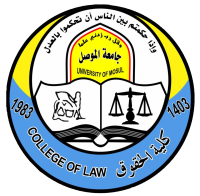13 January، 2024
Legal article

A legal article on ((The discretionary authority of the administration in imposing disciplinary punishment))
Disciplinary penalties were mentioned exclusively and specifically, unlike the disciplinary duties that were mentioned for example. Therefore, the principle ((no crime and no punishment except by a text)) does not apply in the criminalization part of it, while it applies in the punishment part, and this matter grants the administration discretionary power. In linking the disciplinary violation and the punishment imposed on it, however, this authority is not absolute authority, but rather there are determinants and controls that the administration must adhere to in order for its actions to be legitimate, which is what we call proportionality within the scope of imposing disciplinary punishment. If the administration deviates from this matter, we say It has gone to extremes in imposing the penalty, which is what in administrative law jurisprudence is called excessive disciplinary punishment. The public employee’s good conduct, not having previously been subjected to a disciplinary penalty, the administration’s error, or the poor organization of the public facility all fall within the administration’s authority to weigh the disciplinary penalty and impose it on the negligent employee in order to achieve There is a real proportionality between the violation committed and the penalty that results from it.
Assistant Professor Dr. Ahmed Mahmoud Ahmed/
Public law branch/
collage of rights/
University of Al Mosul .
















